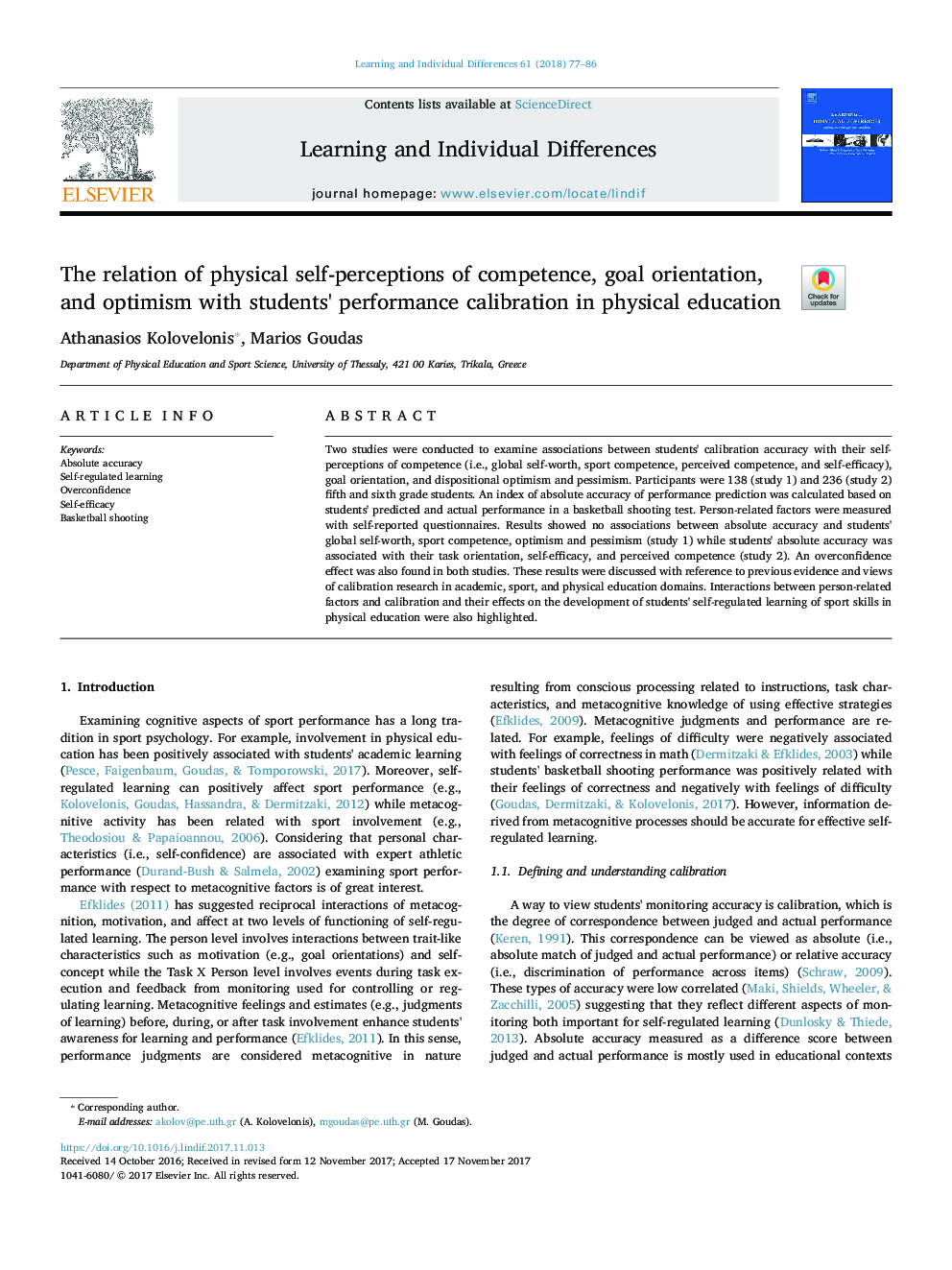| Article ID | Journal | Published Year | Pages | File Type |
|---|---|---|---|---|
| 6844510 | Learning and Individual Differences | 2018 | 10 Pages |
Abstract
Two studies were conducted to examine associations between students' calibration accuracy with their self-perceptions of competence (i.e., global self-worth, sport competence, perceived competence, and self-efficacy), goal orientation, and dispositional optimism and pessimism. Participants were 138 (study 1) and 236 (study 2) fifth and sixth grade students. An index of absolute accuracy of performance prediction was calculated based on students' predicted and actual performance in a basketball shooting test. Person-related factors were measured with self-reported questionnaires. Results showed no associations between absolute accuracy and students' global self-worth, sport competence, optimism and pessimism (study 1) while students' absolute accuracy was associated with their task orientation, self-efficacy, and perceived competence (study 2). An overconfidence effect was also found in both studies. These results were discussed with reference to previous evidence and views of calibration research in academic, sport, and physical education domains. Interactions between person-related factors and calibration and their effects on the development of students' self-regulated learning of sport skills in physical education were also highlighted.
Related Topics
Social Sciences and Humanities
Psychology
Developmental and Educational Psychology
Authors
Athanasios Kolovelonis, Marios Goudas,
